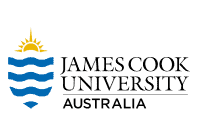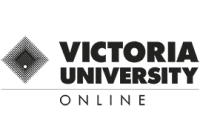How do I choose my MBA specialisation? Do you need help deciding which MBA specialisation to pursue in Australia? With so many options available, choosing the one that aligns with your career goals and interests can be daunting. But don't worry; we've got you covered. In this article, we'll guide you through the process of selecting the right MBA specialisation in Australia.
To begin with, you need to consider your career aspirations and the skills you want to acquire. For instance, an MBA in finance would be an ideal choice if you are interested in finance. Similarly, if you want to pursue a career in marketing, then an MBA in marketing would suit you best. You also need to research the job market and identify the industries that are currently in demand. This will help you to make an informed decision based on the availability of jobs and growth prospects.
Now, you must be wondering, how do you evaluate which specialisation is the best for you? In this article, we'll provide a comprehensive guide that includes factors to consider, tips for choosing the right specialisation, and the top MBA specialisations in Australia. So, whether you're a recent graduate or a working professional, this article will help you choose the right MBA specialisation in Australia to boost your career prospects.
So, let's dive in and explore the world of MBA specialisations in Australia with the guidance of subject matter experts in the industry. Get ready to make an informed decision that will shape your future!
Quick Links To Online MBA Degree Programs
Southern Cross University
Master of Business Administration (MBA) Online
- 2 years, Part-time
- 8-16 units
- $2,990 per unit, FEE-HELP available
James Cook University
Master of Business Administration Global (MBA Online)
- 24 months, Part-time
- 12 subjects (One subject per each 7-week study period)
- $3,700 per subject, FEE-HELP is available
Victoria University
Master of Business Administration (Online)
- 2 years Part-time (minimum)
- 12 units (7 weeks)
- $3,650 per unit, FEE-HELP available
University Of New South Wales
MBAX (Finance)
- 2-6 years part-time
- Fee: AUD$5,190
- Commencing Terms
Term 1 – February
Term 2 – June
Term 3 – September
What Is an MBA?
An MBA, also known as a Master of Business Administration, is a graduate degree in business administration meant to equip students with the information, experience, and abilities necessary to succeed in various business environments. MBA programmes often educate students in various business-related areas, including accounting, finance, marketing, operations, strategy, and leadership.
Benefits of Earning an MBA
1. High-Quality Education
The education offered at Australian institutions is often recognised as being of an exceptional standard. The nation possesses a robust education infrastructure, and its universities are widely regarded across the world for the excellence of their academic programmes.
If you decide to pursue a Master of Business Administration in Australia, you can be assured that you will obtain an education of the highest calibre, one that will provide you with the competencies and information you need to be successful in your chosen line of work.
2. Global Recognition
The Master of Business Administration degree earned from an Australian university is highly regarded and recognised internationally. Employers place a great value on receiving this degree, as it is widely regarded as a benchmark of excellence in the world of business. Because it can provide access to work prospects worldwide, an MBA from Australia is an invaluable asset for your professional development.
3. Career Advancement
Getting a master's degree in business administration in Australia might considerably improve your chances of finding work in your field. You will get the information and skills necessary to be successful in leadership roles across a variety of companies and sectors, thanks to the degree. Having a master's degree in business administration can help you stand out in today's competitive work market and boost your chances of being promoted and earning higher pay.
4. Networking Opportunities
Earning a master's degree in business administration in Australia opens up fantastic opportunities for networking. You will be studying alongside a diverse group of students from various countries and cultures.
This will provide you with a one-of-a-kind opportunity to form long-lasting connections with people who may be able to assist you in your professional life. In addition, colleges in Australia frequently host career fairs, events for alumni, and networking opportunities, all of which make it possible for you to make connections with industry professionals and future employers.
5. Personal and Professional Growth
Your personal and professional development can both benefit from earning a Master of Business Administration in Australia. The programme's purpose is to provide you with new challenges and force you to step outside of your comfort zone to learn new skills and broaden your perspective. Earning a master's degree in business administration can also help you develop self-assurance, leadership skills, and a more strategic approach to decision-making.
6. Flexibility and Convenience
There are a number of universities in Australia that provide MBA programmes that are adaptable and easy to access. Depending on the demands of your personal and professional life, you have the option of pursuing your education either fully, partially, or entirely online. Because of the adaptability of the curriculum, you will be able to maintain a healthy balance between your academic pursuits, your professional responsibilities, and your personal life.
7. Cultural Diversity
People from all walks of life and from a wide variety of cultural traditions call Australia home, contributing to the nation's well-earned reputation for rich cultural diversity. You will be provided with a one-of-a-kind educational opportunity that can help extend your views if you pursue a Master of Business Administration (MBA) degree in Australia since you will be exposed to new ideas and ways of thinking.
8. Cost-Effective
The cost of getting an MBA in Australia is often far lower than it is in the United States or other popular countries. Studying in Australia may be more financially feasible than studying in the United States or the United Kingdom due to the fact that tuition fees vary from university to institution. In addition, there is a wide variety of financial assistance in the form of scholarships and awards accessible to overseas students.
9. Employment Opportunities
Obtaining a Master of Business Administration (MBA) in Australia can also lead to fantastic job prospects. As a result of completing the programme, you will possess the information and abilities necessary to succeed in various fields and industries, making you an attractive prospect to future employers. In addition, Australia has a robust economy and a low unemployment rate, all of which make it an excellent location for people who are looking for work.
10. Entrepreneurship Opportunities
Obtaining a Master of Business Administration (MBA) in Australia might also provide fantastic prospects for starting a business. This curriculum will teach you all you need to know to launch and run a thriving business, including the necessary knowledge and abilities. In addition, Australia has a favourable business environment, which makes it simpler to launch a new enterprise and more appealing to potential investors.
11. Industry-Relevant Curriculum
MBA programmes offered by Australian colleges are adapted to fulfil the requirements of a wide variety of business fields and specialisations. The coursework is organised to provide students with the information and experience they need to succeed in the industry that most pique their interest. In addition, regular updates are made to the software in order to incorporate the most recent tendencies and breakthroughs in the corporate world.
12. Enhanced Soft Skills
Getting a master's degree in business administration (MBA) in Australia can also help you improve your "soft skills," which include communication, leadership, and teamwork. You will be able to improve these vital abilities that are highly appreciated in the business by participating in the programme, which includes activities such as group projects, case studies, and presentations.
13. Work-Life Balance
Universities in Australia understand the significance of striking a balance between their professional and personal lives. Suppose you pursue a Master of Business Administration in Australia. In that case, you will have access to a variety of support services and tools that can assist you in maintaining a healthy work-life and personal-life balance while you are completing your studies.
Understanding the Importance of MBA Specialisations
Students who are pursuing an MBA might choose to specialise in a particular academic subfield within the realm of business if they so desire. These specialisations can assist you in developing the knowledge and skills necessary to be successful in particular fields of endeavour or in particular functions.
A specialisation in finance, for instance, can give you an in-depth understanding of financial analysis, investment management, and risk evaluation. In the same vein, specialising in marketing can provide you with the abilities necessary to create and carry out marketing strategies capable of driving a corporation's expansion.
Choose the appropriate area of specialisation. It will be easier for you to reach the professional objectives you have set for yourself by providing you with the essential expertise and sector-specific knowledge. Also, it might help you stand out in today's competitive job market and raise the ceiling on your prospective earnings.
Popular MBA Specialisations in Australia
In Australia, students can choose from a wide variety of MBA specialisations, each focusing on a different area of interest and offering a different set of job opportunities. The following are some of the most popular areas of concentration for MBA students in Australia:
1. Finance
The financial components of a business, such as investments, risk management, financial analysis, and corporate finance, are the primary focus of an MBA in Finance. Alumni who have completed this specialisation are qualified for positions in investment banking, corporate finance, asset management, and financial consulting, among other related fields.
2. Marketing
An MBA in Marketing emphasises marketing-related areas of business, such as market research, brand management, product creation, and digital marketing, among other related topics. Careers in marketing management, brand management, product creation, and digital marketing are all open to graduates who have completed this specialisation.
3. Entrepreneurship
An MBA with a concentration in Entrepreneurship teaches students how to launch and expand their own companies, with a particular emphasis on business planning, venture capital, and entrepreneurial finance. Students who graduate with this concentration will be prepared for positions in areas such as corporate entrepreneurship, small company management, and startup companies.
4. International Business
An MBA in International Business focuses on the global dimensions of business, such as international trade, cross-cultural management, and global strategy. This area of study is also known as "global management." Alumni who have completed this concentration have the ability to pursue professions in international trade, worldwide consultancy, and management of international businesses.
5. Healthcare Management
The management components of healthcare companies, such as healthcare policy, healthcare operations, and healthcare marketing, are the primary focus of a Master of Business Administration in Healthcare Management degree. Career opportunities in healthcare management, healthcare consultancy, and healthcare marketing are available to graduates who have completed this concentration.
6. Operations Management
Production and operations management, including supply chain management, logistics, and quality management, are the primary foci of students pursuing a Master of Business Administration in Operations Management. Graduates who complete this concentration are prepared for positions in operations management, supply chain management, and logistics management, among other related fields.
7. Human Resource Management
An MBA with a concentration in Human Resource Management teaches students how to effectively manage human resources within firms, particularly emphasising employee relations, talent acquisition, and talent development. Graduates who complete this concentration have the skills necessary to seek positions in employee relations, human resource management, and talent management.
8. Information Systems Management
The management of information technology inside enterprises, including IT strategy, IT governance, and enterprise architecture, is the primary focus of students who pursue a Master of Business Administration in Information Systems Management. IT management, IT consulting, and enterprise architecture are all fields that offer opportunities for graduates who have completed this degree.
These are only a few of the many popular MBA concentrations that can be pursued in Australia. When choosing a concentration for your MBA, it is vital to consider your career ambitions, your personal interests, and the need for specialists in the subject you are interested in. You can take your career to new heights by specialising in the right area of study for your MBA.
Factors to Consider When Choosing an MBA Specialisation
Picking a specialisation for your MBA is a significant decision that may have repercussions for your future professional path. When choosing a specialisation for your MBA, here are some considerations to keep in mind:
1. Career Goals
When selecting a specialisation for your MBA, you should give the main weight to the ambitions you have for your career. Think about the kinds of jobs that excite you, the fields you're considering working in, and the talents you'd like to improve. If you are interested in a career in finance, for instance, earning an MBA with a concentration in finance might be the ideal option for you.
2. Industry Trends
The current trends in the industry are another factor that could influence your choice. Consider the job opportunities available for experts in the field you've decided to work in, as well as the development potential of the industry as a whole and any new trends that may emerge in the future.
For instance, if you have an interest in the medical field, getting a master's degree in business administration with a concentration in healthcare management can be a good option for you due to the increasing demand for medical experts.
3. Personal Interests
When choosing a speciality for your MBA, you should take into account your own particular interests. If you want your academic pursuits to be more interesting and pleasurable, it's important to pick a concentration that interests you personally. For instance, if you have an interest in sustainability and want to further your education, an MBA in Sustainability can be the perfect choice for you.
4. Course Curriculum
Examine in great detail the course requirements for each MBA concentration you are considering pursuing. Examine the many classes that are available, as well as the learning goals and instructional strategies. Choose the best area of expertise for you based on how you study best and the things that most interest you.
5. Program Reputation
You should also take into consideration the reputation of the MBA programme as well as the faculty while making your choice. Investigate the institution's standing in terms of accreditation, rankings, and reputation in the field. Talk to students currently enrolled in the programme and graduates of the school to get a better idea of the advantages and disadvantages of the programme.
6. Networking Opportunities
Take into consideration the opportunities for networking that come with each MBA concentration. Search for programmes that will allow you to connect with working professionals in your field, participate in internships or co-op programmes, and attend events where you can network with others.
7. Geographic Location
Last but not least, consider the application's physical setting. Certain MBA concentrations may be more in demand in certain parts of the country; selecting a programme offered in a particular area can have an effect on the kinds of jobs you can get when you graduate. If you are interested in working in the finance industry in Sydney, for instance, earning an MBA in Finance from a programme that is situated in Sydney may give you greater options for networking and career prospects.
While selecting a concentration for your MBA, if you keep these considerations in mind, you can make an educated decision that fits in with your professional aspirations and your personal passions.
What to Expect From an MBA Program in Australia
It is essential that you have a solid understanding of what the Master of Business Administration (MBA) programme entails if you are thinking about enrolling in it in Australia. When selecting an MBA programme in Australia, some of the most important considerations to take into account include the following:
1. Curriculum and Coursework
MBA programmes in Australia often cover a wide variety of business-related areas, including finance, accounting, marketing, operations, and strategy. There is a possibility that the programme will also contain specialised classes in subjects such as entrepreneurship, international business, or environmental sustainability. Students will get both theoretical and practical knowledge of business through the coursework, as well as practical experience in the form of case studies, projects, and internships. The goal of the coursework is to give students a firm foundation in business theory and practice.
2. Class Structure and Size
MBA programmes in Australia can be organised in various ways, depending on the sort of programme offered and the educational establishment that offers it. Certain programmes may have smaller class numbers than others, allowing students to receive more individualised attention from instructors and a wider range of possibilities to collaborate with classmates. Some programmes may have larger class numbers, which gives students access to a wider variety of perspectives and opportunities to network.
3. Faculty and Staff
The quality of an MBA programme is directly correlated to the calibre of its teaching team and administrative support. Seek educational opportunities that feature faculty members who are knowledgeable and experienced in the field of business and who have a solid reputation in that field. In addition, you should take into consideration the resources and support that are made accessible to students, such as academic advising, mentorship programmes, and career services.
4. Extracurricular Activities and Networking Opportunities
The majority of MBA programmes in Australia provide their students with a wide variety of extracurricular activities and opportunities for networking. Some examples of these activities include industry events, student clubs and organisations, and guest lectures. Students can make valuable connections with professionals working in their areas of interest and gain exposure to a variety of business industries by participating in these activities, which can provide students with these opportunities.
Conclusion
You may find that selecting a concentration for your MBA is a challenging endeavour; nevertheless, with the assistance of knowledgeable advisors and thorough research, you may arrive at a conclusion that is in line with your professional goals. There is a wide variety of master of business administration (MBA) specialisations available in Australia.
They might range from finance and marketing to entrepreneurship and international business. It is crucial to take into consideration your existing skills and interests, as well as the direction you wish to take in your career in the future, before making the best selection for your professional life.
What steps do you plan to take in order to zero in on a particular concentration among the Master of Business Administration programmes available in Australia?
Content Summary
- As you weigh your options, it's important to consider not only the popularity of the program but also the quality of education and the potential return on investment.
- That's why we've conducted extensive research and analysis to provide you with the most up-to-date information on the MBA programs that are truly in demand in Australia.
- The Master of Business Administration (MBA) on a part-time basis is intended for working individuals who wish to continue working while earning their MBA.
- Students who enrol in MBA schools that offer dual degrees have the opportunity to earn both an MBA and another graduate degree at the same time.
- The typical length of time needed to graduate from a global MBA programme is between 12 and 24 months.
- MBA schools that focus on a particular field of business, such as finance, marketing, or entrepreneurship, are called specialised MBA programmes.
- The length of time needed to finish a specialised MBA programme might range anywhere from 12 to 24 months.
- There are a number of Master of Business Administration (MBA) programmes in Australia that are quite prestigious and are recognised among the very best in the world.
- The Melbourne Business School provides a full-time Master of Business Administration (MBA) programme.
- The full-time Master of Business Administration (MBA) programme offered by the University of Sydney Business School is consistently regarded as one of the most prestigious in both Australia and the Asia-Pacific region.
- In addition, working professionals have the option to complete the programme on a part-time basis.
- The MBA programme at Monash Business School is one of the few that is offered on a full-time basis and is consistently ranked well both in Australia and internationally.
- Students enrolled in some of the best MBA programmes in Australia have access to a wide variety of professional development and career advancement possibilities.
- In order to be considered for admission into an MBA programme in Australia, applicants often need to demonstrate that they have satisfied a set of particular requirements.
- The majority of Master of Business Administration (MBA) programmes in Australia necessitate that potential students demonstrate their aptitude through the completion of a standardised examination such as the Graduate Management Admission Test (GMAT) or the Graduate Record Examination (GRE).
- The majority of MBA programmes in Australia require applicants whose first language is not English to provide evidence of their proficiency in the English language.
- Letters of recommendation from individuals who can attest to the applicant's professional and academic qualities are required by many MBA programmes, and applicants must submit these letters along with their applications.
- In general, the prerequisites for getting into an MBA programme in Australia are made to ensure that prospective students have the knowledge, experience, and credentials required to do well in a challenging graduate programme.
- Students who enrol in MBA programmes receive a solid grounding in the foundations of business, which may include marketing, finance, and management of operations.
- MBA graduates in Australia have access to a diverse pool of employment opportunities from which to pick.
- The abilities and information that are obtained through participation in an MBA programme can provide graduates with a significant advantage in the job market.
- When selecting an MBA school, one of the most crucial aspects to take into consideration is the available specialisations.
- You must select an MBA school that is congruent with your professional aspirations because various MBA programmes provide varying advantages and disadvantages.
- Your job opportunities may be significantly influenced by the reputation of the MBA programme that you attended.
- Before making a choice, it is crucial to research the reputation of the MBA programmes being considered.
- It is also possible for the curriculum of an MBA school to play a significant role in assessing the value of the degree.
- Examining the course load of a Master of Business Administration (MBA) programme is essential for determining whether or not it will help you achieve your professional objectives.
- It is also possible for the faculty of an MBA school to play a substantial effect in the program's overall worth.
- It is crucial to do research on the faculty of a Master of Business Administration (MBA) programme to verify that they have the competence and experience required to teach students to a high standard.
- Last but not least, the alumni network of an MBA programme can be an extremely useful resource for grads.
- Students enrolled in MBA programmes are frequently given the opportunity to network with alumni, instructors, and industry professionals.
- It is essential to conduct a study on the network of an MBA programme to determine whether it can supply you with the contacts you require to develop your profession.
- For anyone who is interested in moving up in their profession, selecting the appropriate MBA programme is of the utmost importance.
- To summarise, students who want to advance their careers and increase the breadth of their skill sets have a number of options, but one of the best is to do an MBA in Australia.
- After learning about the many Master of Business Administration (MBA) programmes offered in Australia, which one do you believe is the most popular and why?
Frequently Asked Questions
Most MBA programs in Australia take between 12 and 24 months to complete.
It may be possible to change your MBA specialisation after starting the program, but this depends on the policies of the university and the availability of spots in the new specialisation.
The average salary for MBA graduates in Australia varies depending on the specialisation, industry, and experience level but typically ranges from AUD 80,000 to AUD 150,000 per year.
Entry requirements for MBA programs in Australia vary by university but typically include a bachelor's degree, work experience, and GMAT or GRE scores.
Yes, many universities in Australia offer online MBA programs that allow students to study from anywhere in the world.






